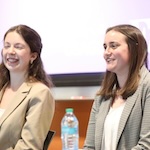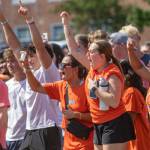
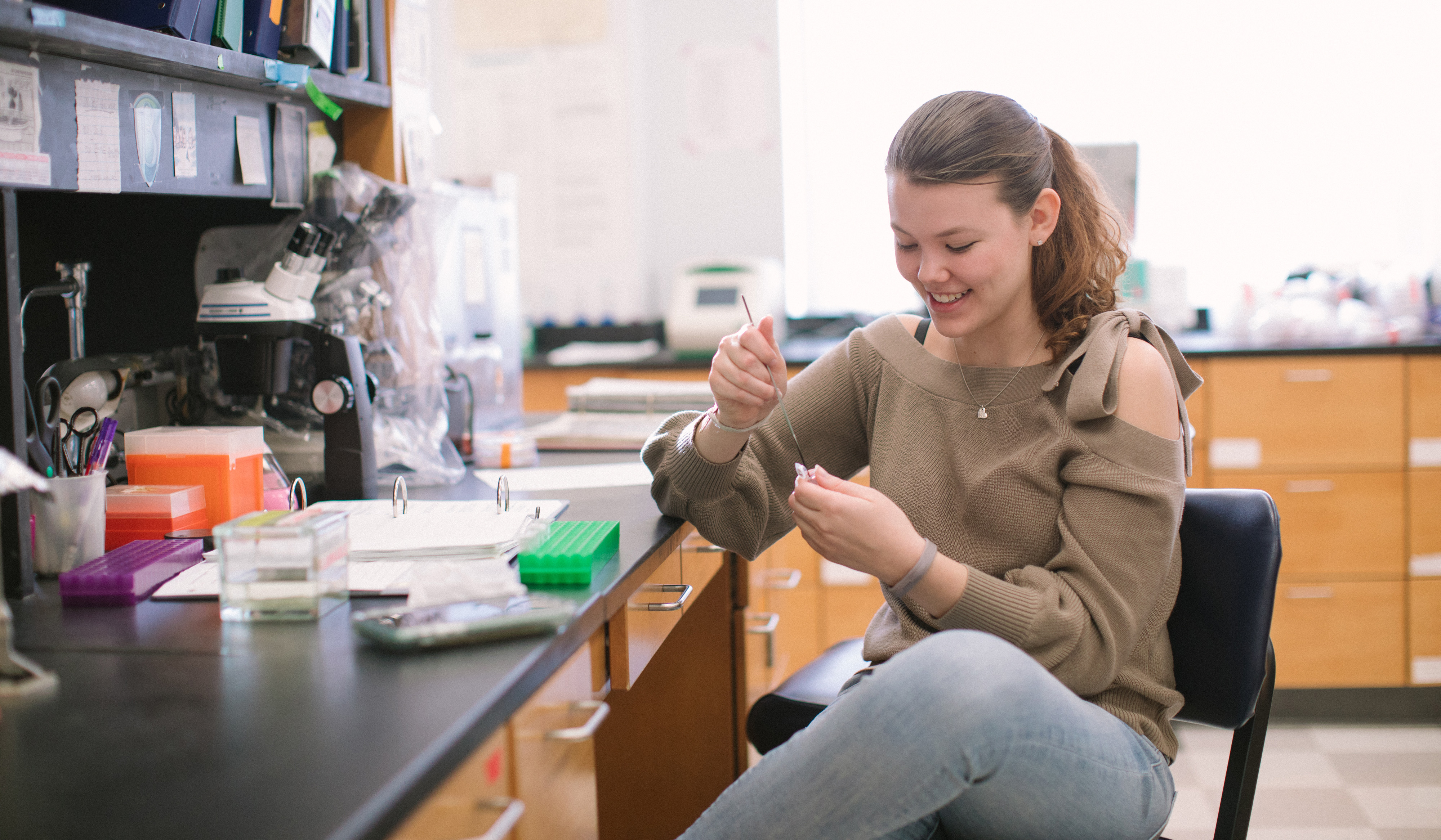
Artificial intelligence (AI), and the emergence of ChatGPT, continue to dominate headlines in the knowledge economy. The proliferation of AI in our world will confront college graduates this year and in the future. Making a living in an era of rapid change requires students to develop agile minds capable of embracing change, learning how and why things work, and collaborating across difference to solve complex problems. In short, it demands knowledge that knows no limits.
At Gettysburg College, we offer such an education. Providing students with a breadth and depth of knowledge through a rigorous and contemporary education in the liberal arts and sciences is one of the anchors of the Gettysburg Approach. This renewed, intensive focus describes how the College delivers its signature undergraduate experience to every student.
Each day, Gettysburg’s first-class faculty brings to life insights and experiences in the arts, humanities, social sciences, and natural sciences, ensuring that Gettysburg College students encounter viewpoints across disciplines and gain a nuanced understanding of the human experience.
Through every opportunity—inside and outside of the classroom—students pursue knowledge as they discover the impact of lifelong learning and begin to realize their career potential.
Discover how Gettysburg College delivers a timeless education for every student.
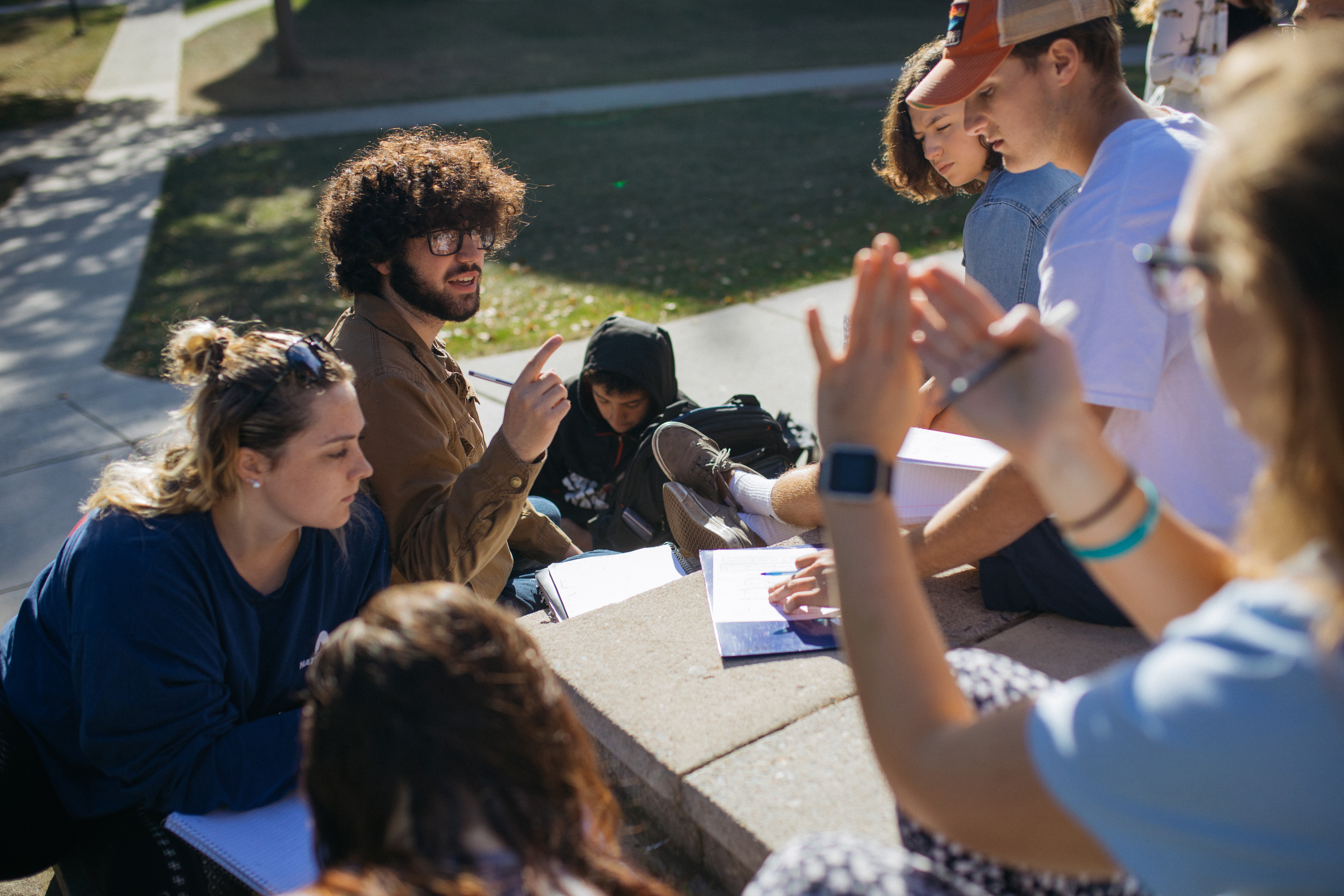
Building on the strengths of our liberal arts and sciences education
A Gettysburg College education asks for engagement and offers challenge and opportunity in return. It invites students to spark their imaginations, push their limits, and hone enduring skills. Gettysburg’s distinctive curriculum empowers students to fully explore the breadth and depth of subjects in the liberal arts and sciences for an undergraduate experience that truly transforms lives.
Why is our liberal arts and sciences education so transformational?
By taking classes and engaging in experiences in an array of disciplines beyond a single area of focus, students expand their capacity for knowledge at every turn. They make new connections, discover new possibilities, and plumb the depths of conundrums and questions that have and will continue to confront society.
Gettysburg College’s liberal arts and sciences education is rooted in this interdisciplinary study. It is the link between present knowledge and unlimited learning potential.
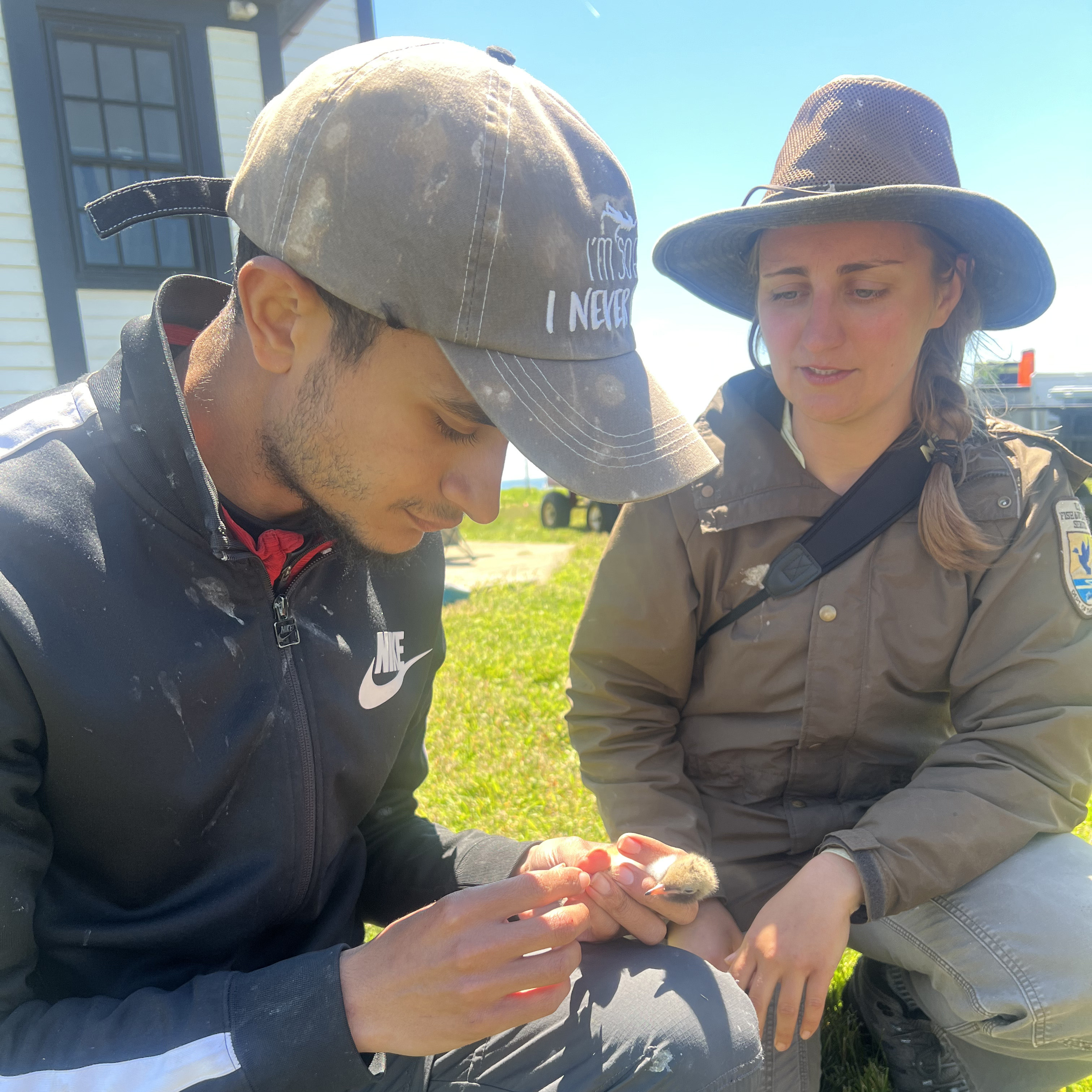
The Gettysburg Approach embraces the philosophy of the liberal arts and sciences education at its core.
“The Gettysburg Approach turns four years of college into a lifelong asset for every student, regardless of their background or interests,” said History Prof. Timothy J. Shannon. “The experiences and habits of mind encouraged by an education in the liberal arts and sciences will reap dividends over a lifetime.”
At Gettysburg College, we want to produce graduates who are irreplaceable. Our Gettysburg Approach extends over the full arc of students’ lives and careers, readying them for all that comes next.
Studies continue to show the enduring value of a liberal arts and sciences education in the job market.
“80% of employers agree that all students should acquire knowledge in the liberal arts and sciences.”
– American Association of Colleges and Universities (AAC&U)
The U.S. Department of Education’s College Scorecard ranks 4,500 colleges and universities by their return on investment (ROI). Through its study, Georgetown University found that the ROI for students who have attended liberal arts institutions grows in value over time. Gettysburg College consistently ranks among the best liberal arts colleges in the nation for ROI over the course of a graduate’s career:
“No. 50 among liberal arts college based on 10-year ROI
No. 33 among liberal arts colleges based on 40-year ROI.”
– The Georgetown University Center on Education & the Workforce ROI Study: ROI of Liberal Arts Colleges
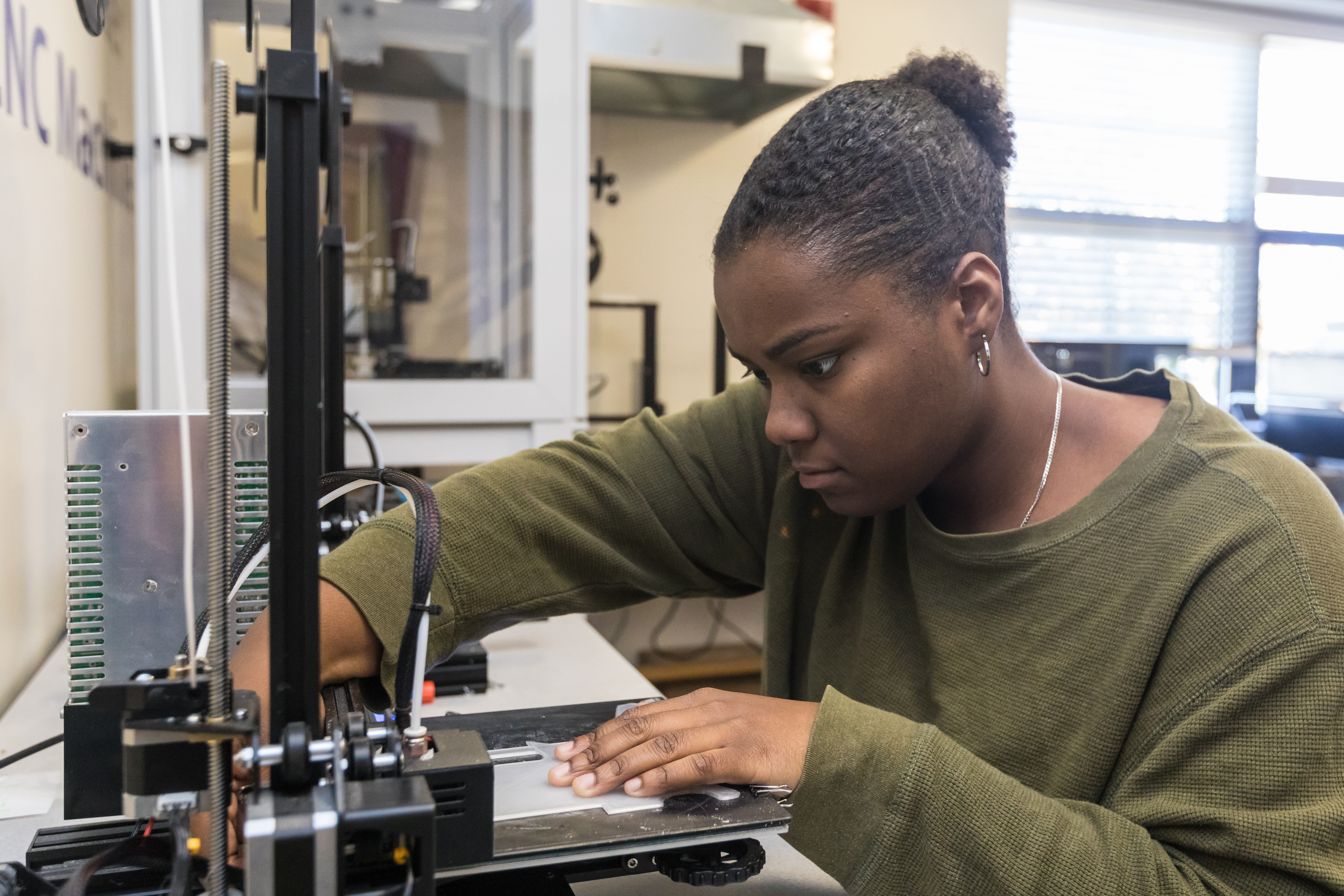
Demonstrating knowledge through enduring skills
Remote work and an economy that continues to rely more and more on technology and global connections will confront Gettysburg graduates today and tomorrow. Advancements in ingenuity and innovation impact every aspect of our lives, from the way we live to the way we work.
In its report “The New Work Smarts,” the Foundation for Young Australians (FYA) explained that the current generation of students will experience what it calls a “portfolio career.” They predict this generation of students will have 17 job changes in five different industries over the course of their lifetime. Gettysburg is committed to preparing students for this future.
Having the necessary skills and aptitudes to successfully transition from job to job and industry to industry isn’t just a nice-to-have in today’s 21st century world of work—it’s a necessity.
“We hope to instill in our students an instinct for inquiry and exploration, for reason and empathy, for introspection and reflection, for adaptability and resilience. Our education will ready them for their role as active citizens and ensure that they are well-equipped to thrive both personally and professionally,” said Gettysburg College President Bob Iuliano.
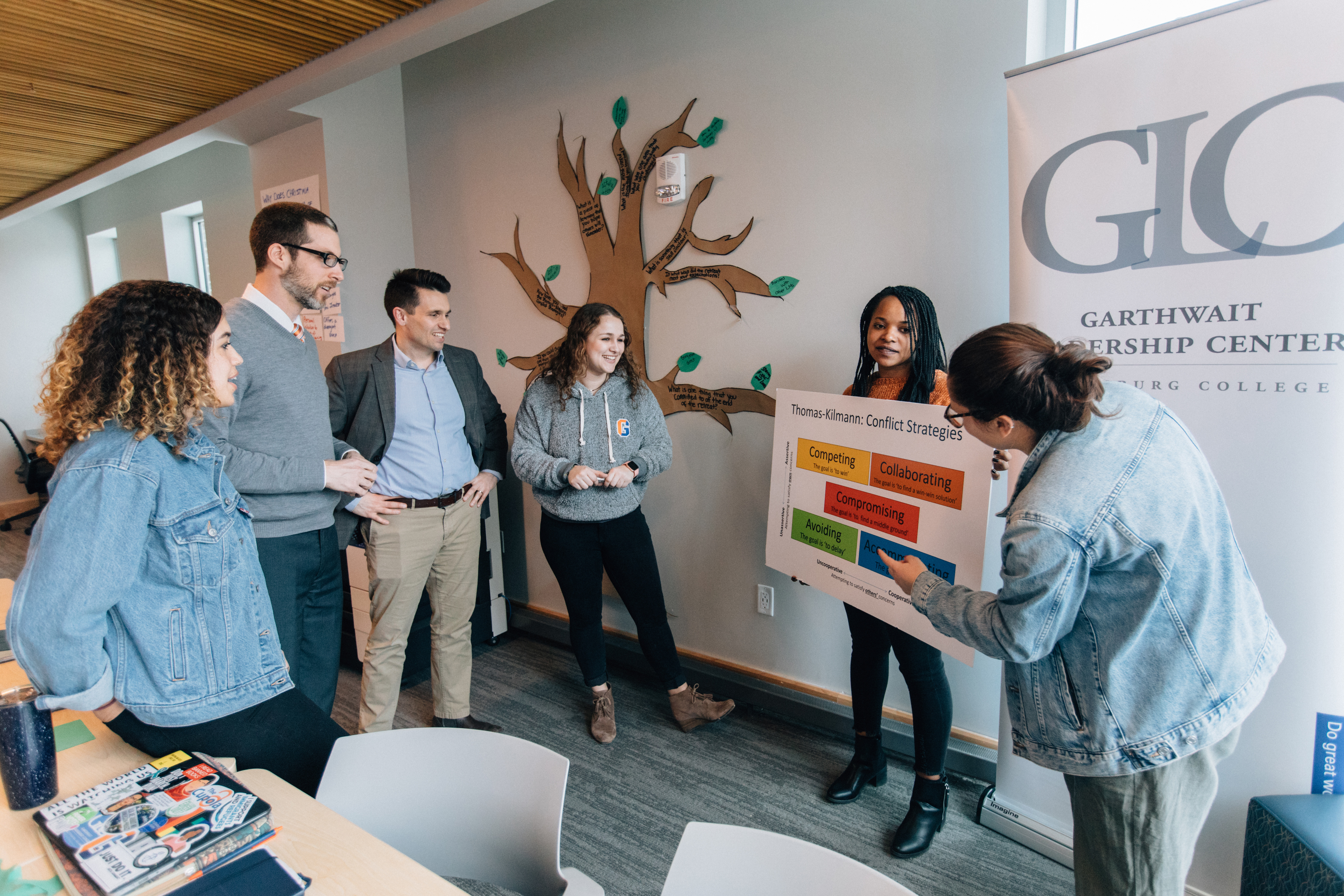
Being well-equipped means not only possessing knowledge but also applying that knowledge to real-world experiences. At Gettysburg, students get the opportunity to do just that. Study abroad opportunities, volunteerism, and participation in program offerings through the Center for Career Engagement, Center for Global Education, Center for Public Service, Eisenhower Institute, Garthwait Leadership Center, and Sunderman Conservatory of Music are among some of the many ways students are gaining experiences and enduring skills to prepare them for the demands of a 21st century workforce.
These experiences and skills are supported within the Guided Pathways, where students practice, absorb, and articulate what they learn at Gettysburg. Participating students are supported by their own Personal Advising Team, consisting of a faculty advisor, co-curricular advisor, and career advisor, with the option of adding an alumni mentor following their sophomore year—ensuring a holistic advising experience.
The Gettysburg Approach ensures students are prepared not only for their first job out of college, but also for every job they will attain in their career thereafter. In today’s ever-evolving world, being prepared for a future not yet written is essential.
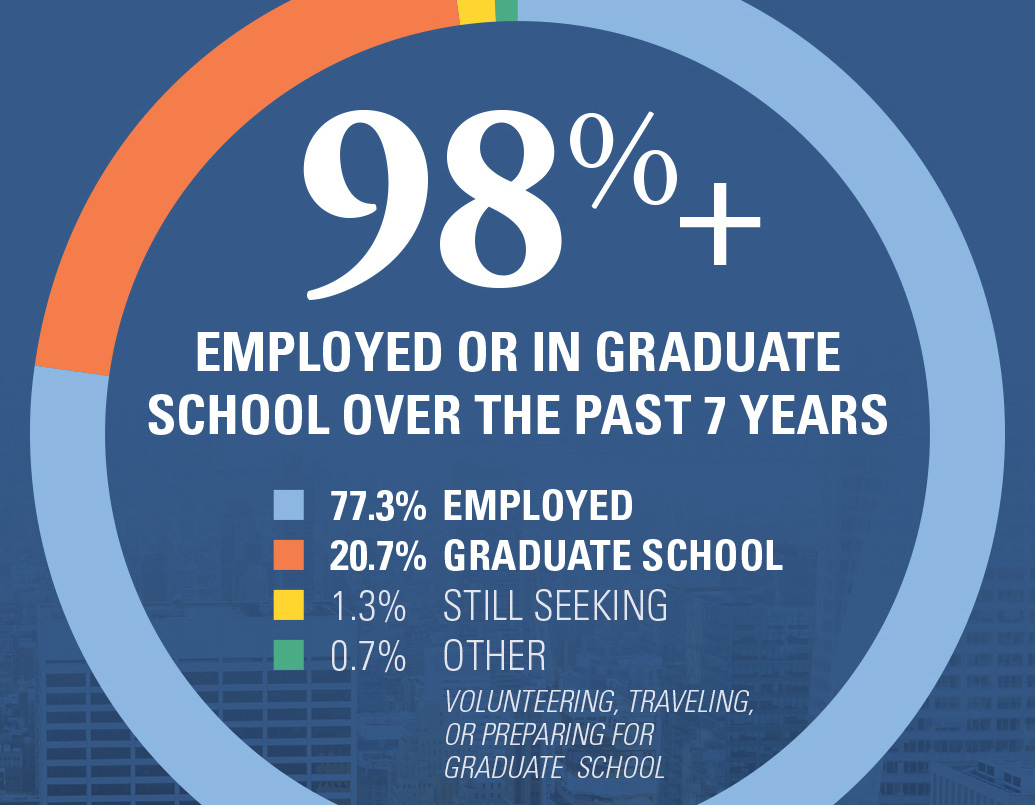
Kindling a desire to acquire knowledge through lifelong learning
A Gettysburg College education provides every student with the tools to lead a life of consequence in ways that are personally meaningful to every individual. The breadth of knowledge that forms the core of every Gettysburg graduate allows individuals to solve problems, create innovations, advocate for societal change, and Do Great Work in their corner of the world.
From the Center for Career Engagement to alumni mentorships offered through the Gettysburg Network, Gettysburg College offers resources to ensure students can land great jobs and lead great lives after graduation.
For Gettysburgians, graduation isn’t an end—it’s only the beginning. Explore some of the perspectives on pursuing knowledge demonstrated by the following professionals from Gettysburg’s active and global alumni network:
Bryan Barth ’13
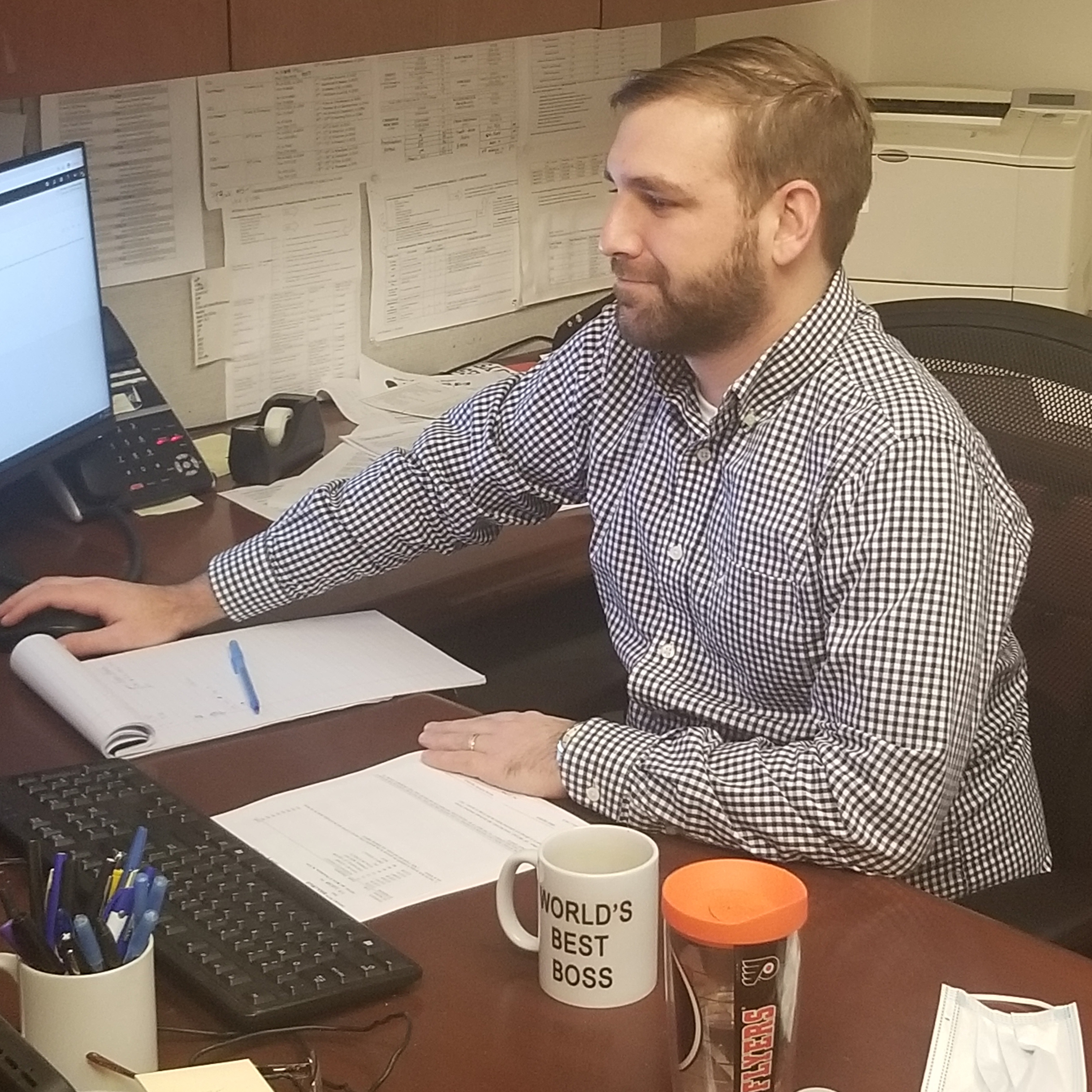
“Having an education that spans a broad array of disciplines does a great job in preparation for [practicing and studying law],” said Bryan Barth ’13. “It may sound cliché, but my favorite part of the job is being in the position to always do the right thing and truly being able to make a difference.”
Ja’Nai Harris ’16

“Gettysburg made me a lifelong learner and a critical thinker,” said Ja’Nai Harris ’16. “I wanted my students to know that somebody who looks like them cares enough to come into this field and dedicate themselves to them.”
Ben Pontz ’20
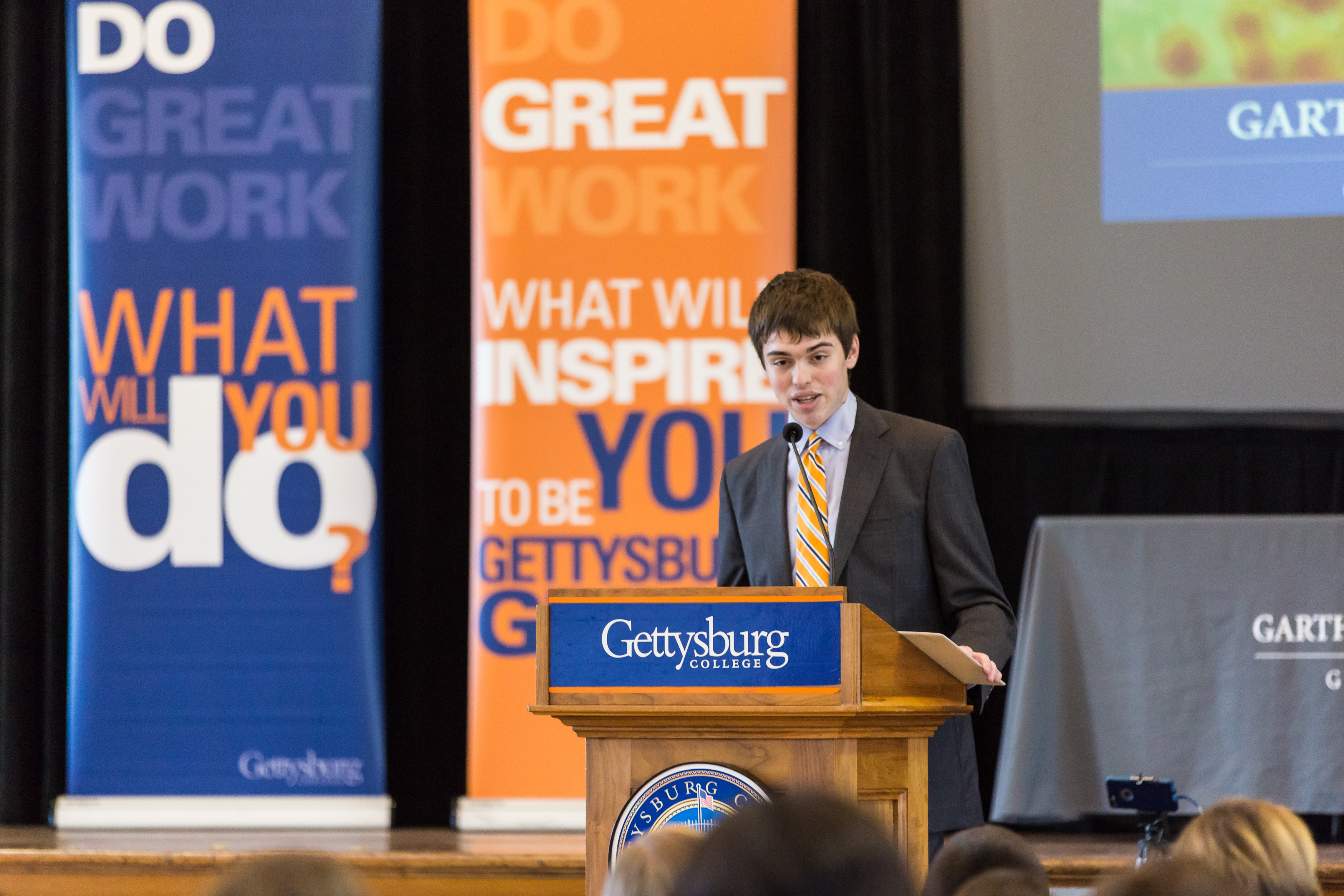
“The reason that you go to a place like Gettysburg is that you can do all the things, do it all at a high level, and have access to the mentors that matter,” Ben Pontz ’20 said. “I can’t think of another school where the same person could realistically be the editor of the newspaper, drum major the marching band, be involved in all the public policy initiatives, and just had that breadth and depth of experiences. I tried never to do anything because it would look good. It was always because it was something I cared about, something I wanted to do well, and something I could do with people and enjoy.”
Learn more about how knowledge plays an integral part in our Gettysburg Approach at www.gettysburg.edu/gettysburg-approach.
By Michael Vyskocil
Photos by Abbey Frisco, Miranda Harple, Khun Minn Ohn ’19, and Shawna Sherrell
Posted: 04/20/23
